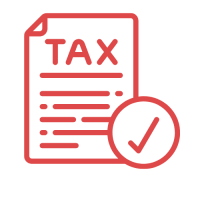Paying super is compulsory for all employers, regardless of whether their staff are employed part-time, full-time or contracted. It’s important to remember that paying super for your workers isn’t a ‘tax’ or form of government revenue; it’s an entitlement to serve your workers in retirement.
With regular changes being introduced in regards to super contributions, it can become overwhelming trying to remain compliant. Employers are required by law to pay all employees super, provided their employees meet certain conditions. To ensure you are remaining compliant and to avoid hefty ATO fines, consider the following tips for paying super.
Paying The Right People
Investigate who of your employees are eligible to earn super. Most employees and many contractors will be eligible, so hiring individuals under certain employment terms to avoid paying super can see you end up facing severe fines. You must pay super to contractors if you have a verbal or written contract that is wholly or principally for their labour and if they are carrying out the work themselves. You will also need to pay casual employees super and the rules have just changed whereby you need to pay even if they earn less than $450 per calendar month.
Paying On Time
Super payments need to be made, at the very least, quarterly. Quarters are broken up as follows:
– Quarter one: 1 July – 30 September, due by 28 October
– Quarter two: 1 October – 31 December, due by 28 January
– Quarter three: 1 January – 31 March, due by 28 April
– Quarter four: 1 April – 30 June, due by 28 July
Paying In The Right Manner
To follow laws and regulations, employers must pay super contributions using SuperStream. The Government created SuperStream as a measure to improve efficiency. It requires employers to send employees’ information regarding their super entitlements electronically through one channel. It is designed to make the task of paying super easier and more time-resourceful.
Paying To The Right Place
Most employers allow employees to choose the superfund in which contributions will be paid to. Since the Government introduced the SuperStream reform, it should not make any difference to employers what funds their employees elect to be paid into. The only stipulation is that the fund must be a complying super fund or retirement savings account.
Paying The Correct Amount
All employers are legally required to pay all eligible employees 10 per cent of their total wage, regardless of how much they earn or their type of employment. Failure to do so will leave an employer susceptible to auditing and heavy fines from the ATO.













